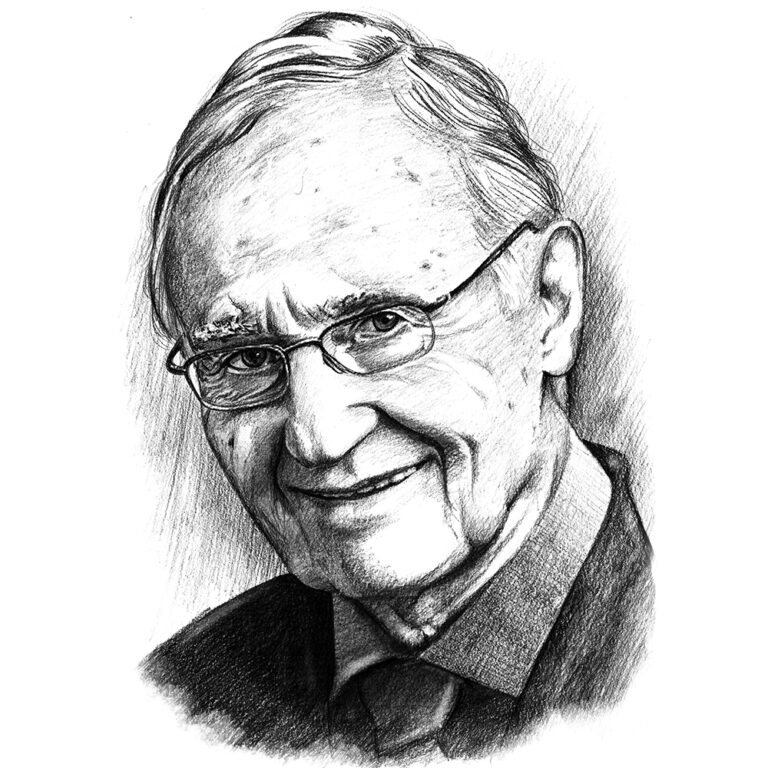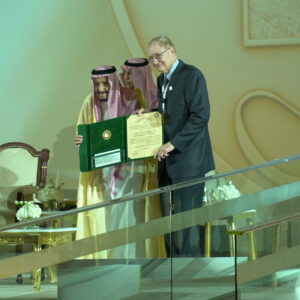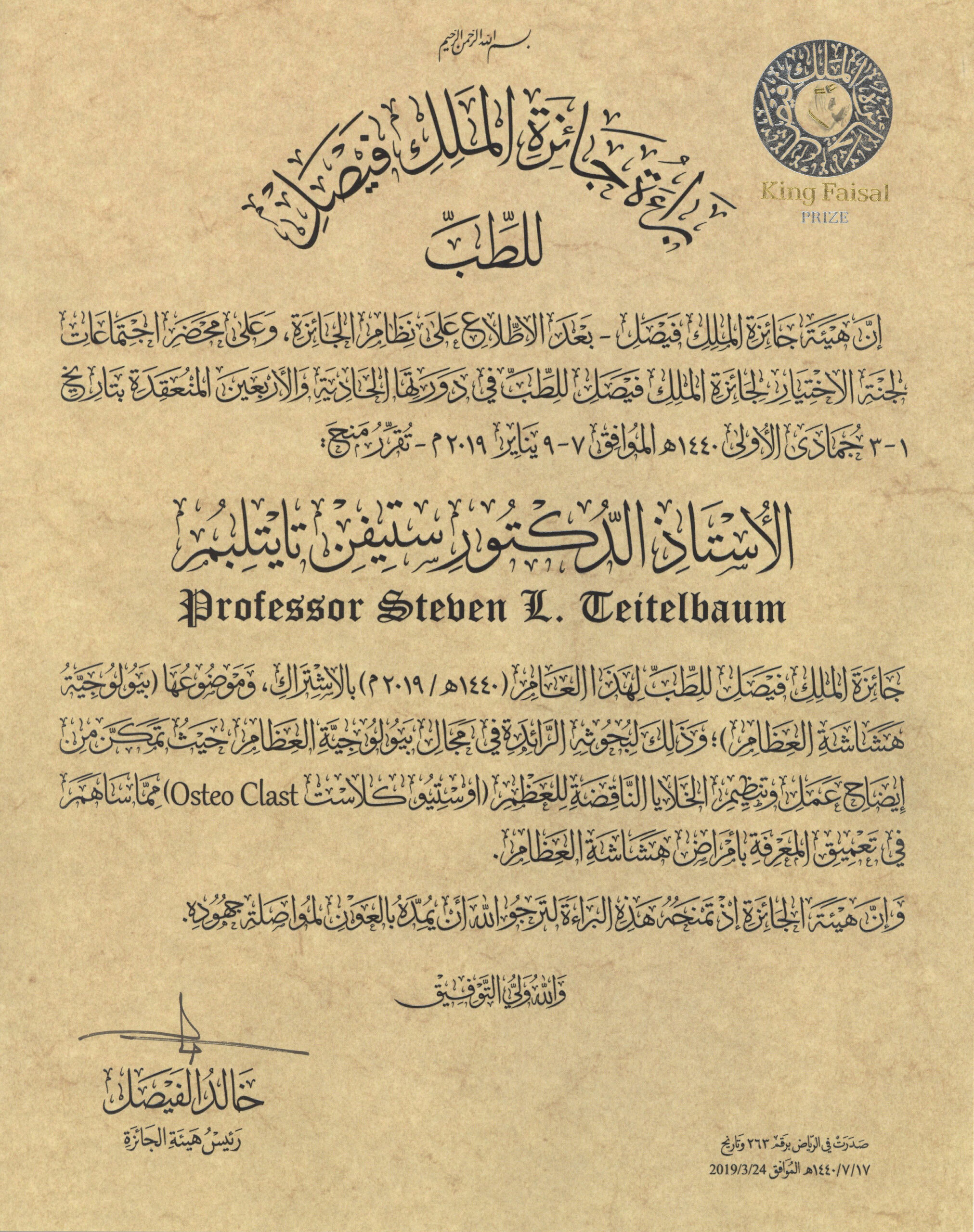

Professor Steven L. Teitelbaum
King Faisal Prize in Medicine 2019 Laureate
Topic: "Bone Biology and Osteoporosis"
My career as a scientist was decided when I encountered a three-month old girl with a rare fatal bone disease called osteopetrosis

Steven Teitelbaum obtained his B.A. from Columbia College in New York and his M.D. from Washington University in St. Louis in 1964, where he rose through academic ranks to become Wilma and Roswell Messing Professor of Pathology, Immunology, and Medicine.
Professor Teitelbaum scientific studies included confirming the hematopoietic lineage of the osteoclast and the mechanisms by which the cell resorbs bone, which contributed to development of anti-osteoporosis drugs and understanding the importance of clinically arresting osteoclast function as opposed to formation. He documented that the αvβ3 integrin is central to osteoclast function and collaborated with industry to design the first specific inhibitor of the complex. His work has given major insights into the means by which inflammatory cytokines modulate osteoclast generation and its capacity to resorb bone contributing to effective therapy for joint destructive conditions such as rheumatoid arthritis. Additionally, he developed a new paradigm for the pathogenesis of glucocorticoid-induced osteoporosis eventuating in a novel approach to its treatment. Moreover, his recent work defined the relationship of osteoclast to obesity and established that a new family of drugs, which do not activate PPARϒ, effectively treat type 2 diabetes without the fracture-predisposing properties of presently used thiazolidinediones.
Professor Teitelbaum has published over 340 papers, and over 50 books and book chapters. He is a member of the editorial boards of several journals, including Cell Metabolism and Experimental Medicine. He held leadership positions in several professional organizations, including the American Society for Bone and Mineral Research. Professor Teitelbaum received numerous honors and awards including the Ann Doner Vaughan Kappa Delta Award, NIAMS Guru Award, and Gideon A. Rodan Award.
This biography was written in the year the prize was awarded.


